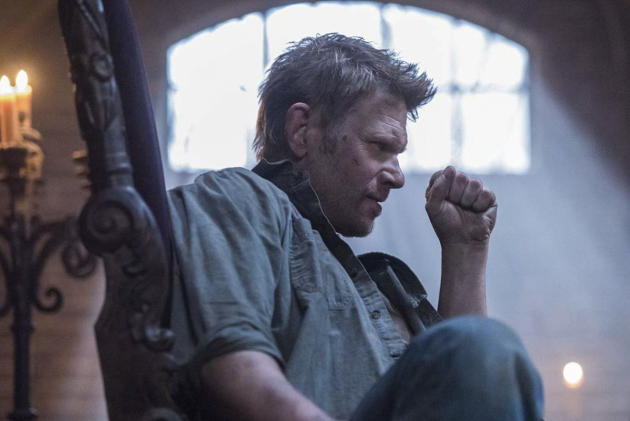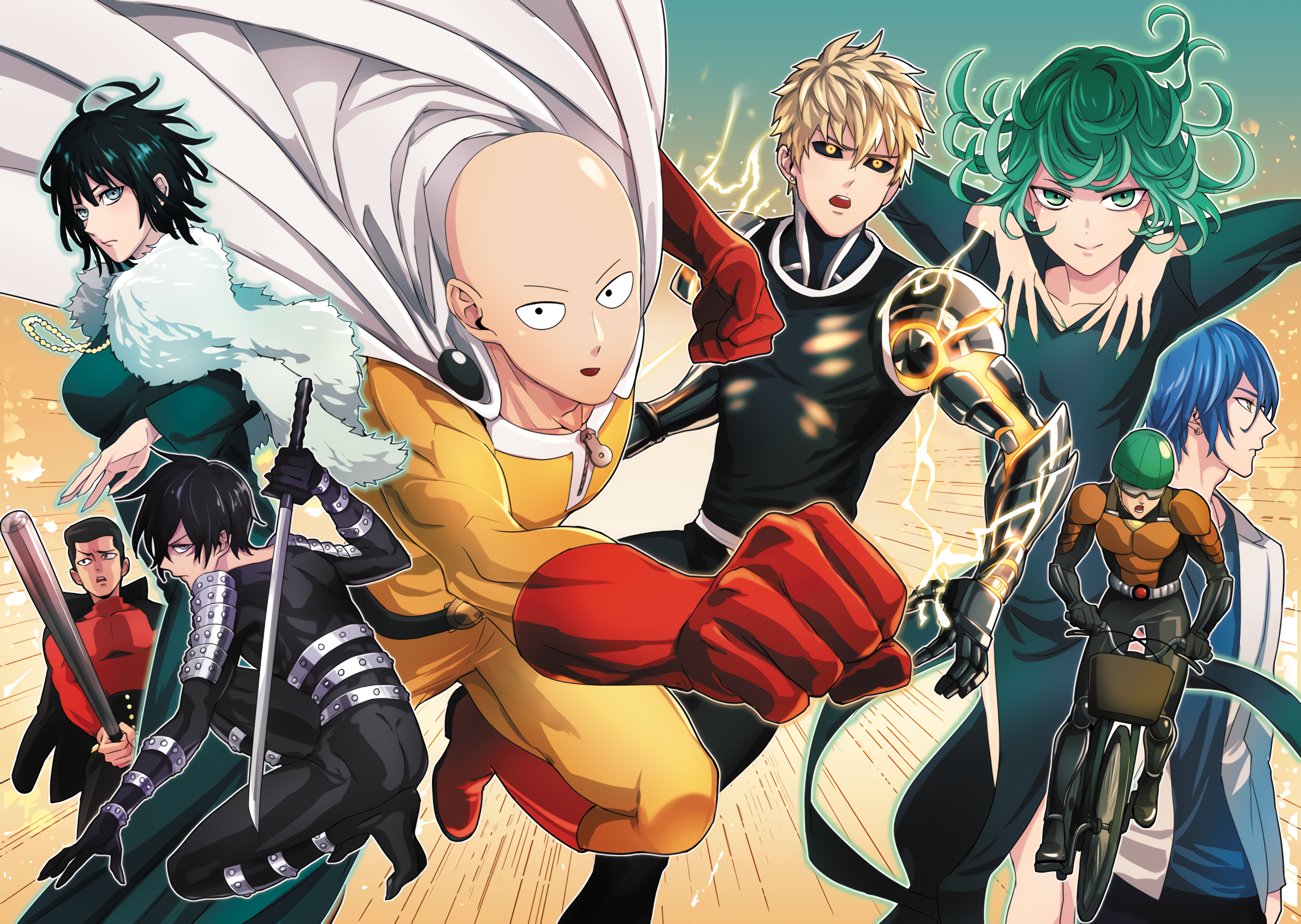Your Name (2017)
Original Japanese Title: Kimi no na wa
Director: Makoto Shinkai
A moving and magical tale, only slightly marred by a touch of hokum and a handful of laughably bad soundtrack tunes.
The movie begins when a high school girl, Mitsuha, seems to have some sort of mental lapse. One morning, she wakes up not acting at all like herself, much to the confusion of her family, friends, and classmates in her small, picturesque town near a dead volcano in Japan. The next day, she is back to herself, but with no idea of what had happened the day before. We eventually realize that, for some mysterious reason, she is swapping bodies with a young high school boy in Tokyo, Taki. At first, they each think that they are simply dreaming, but they eventually come to learn of each others' existence. It is then that the story only deepens, as an already strange situation only grows stranger and more mysterious, as the more the two find out about one another.
The story of Your Name is phenomenal, and it is told with amazing deftness. In the first ten or fifteen minutes, I thought I was merely watching a farcical "body swap" tale which has already been told dozens of times, across dozens of cultures. And the gender swap was nothing fresh, either, not even in Japan, where popular manga and anime character Ranma 1/2 had covered that territory thoroughly back in the 1980s and 1990s. But as Your Name moves beyond the introductory, almost obligatory pratfalls and humorous situations of a gender swap, you realize that there is much more going on with the tale. When Mitsuha and Taki start to try and meet one another, serious and baffling complications arise, leading one of them on an obsessive pursuit of answers - answers which confirm a truly surprising and brutal tragedy.
Despite some of the grimmer aspects, the movie is a romance at heart, even if a bittersweet one at times. And the supernatural elements at work are handled exceptionally well. Often, anime films can be overly flashy, masking narrative and creative shortcomings with an onslaught of chic style and frenetic action. Such is far from the case with Your Name, which is much more about quieter observation of characters and their deepening connection to each other. When one remembers that most of the truly great, classic romances involve supernatural elements and love transcending known realities and boundaries, then Your Name has its place among the classics.
I must note the one obvious blemish on this mostly masterful film. The soundtrack can be downright laughable at times. For whatever reason, those in charge of the music decided to hand the reins over to a Japanese group known as Radwimps. Radwimps is, as far as I can tell, a pop rock group who had some massive hits in Japan between 2006 and 2011. For Your Name, they put together a handful of what I (and my wife) found to be extremely sappy tunes, with lyrics that simply do not translate well into English. One example:
A Ghost Story (2017)
Director: David Lowery
A wonderfully poetic and measured tale of the supernatural, which takes an old and almost silly convention and spins a beautifully melancholy story around it.
Part of this movie's magic is not really knowing where it is headed, so I will offer only a simply introduction to the plot: a young couple, played by Casey Affleck and Rooney Mara, experience a horrible tragedy. The result of the tragedy is that a sheet-enshrouded ghost, a la Casper, now quietly hovers within the couple's home. The ghost merely watches the living, though no living person can see it.
This movie really is unlike any other that I've ever seen. The first ten or fifteen minutes are quite slow. So slow at one point, in fact, that my patience started to wear a bit thin. However, once the story starts to move along at a slightly faster pace, my fascination only grew with every new scene. Along with that fascination comes a steadily-increasing sense of sadness, but it is a sadness of the beautifully poetic variety.
And lest you think that the movie is just a depressing slog into a tragedy which befalls two people, know that this movie goes far, far beyond that. The tale eventually incorporates supernatural elements beyond the obvious ghost, many of which are left open to various interpretations.
I will readily watch this movie again, which is the highest praise I can offer nearly any film.
Original Japanese Title: Kimi no na wa
Director: Makoto Shinkai
A moving and magical tale, only slightly marred by a touch of hokum and a handful of laughably bad soundtrack tunes.
The movie begins when a high school girl, Mitsuha, seems to have some sort of mental lapse. One morning, she wakes up not acting at all like herself, much to the confusion of her family, friends, and classmates in her small, picturesque town near a dead volcano in Japan. The next day, she is back to herself, but with no idea of what had happened the day before. We eventually realize that, for some mysterious reason, she is swapping bodies with a young high school boy in Tokyo, Taki. At first, they each think that they are simply dreaming, but they eventually come to learn of each others' existence. It is then that the story only deepens, as an already strange situation only grows stranger and more mysterious, as the more the two find out about one another.
The story of Your Name is phenomenal, and it is told with amazing deftness. In the first ten or fifteen minutes, I thought I was merely watching a farcical "body swap" tale which has already been told dozens of times, across dozens of cultures. And the gender swap was nothing fresh, either, not even in Japan, where popular manga and anime character Ranma 1/2 had covered that territory thoroughly back in the 1980s and 1990s. But as Your Name moves beyond the introductory, almost obligatory pratfalls and humorous situations of a gender swap, you realize that there is much more going on with the tale. When Mitsuha and Taki start to try and meet one another, serious and baffling complications arise, leading one of them on an obsessive pursuit of answers - answers which confirm a truly surprising and brutal tragedy.
Despite some of the grimmer aspects, the movie is a romance at heart, even if a bittersweet one at times. And the supernatural elements at work are handled exceptionally well. Often, anime films can be overly flashy, masking narrative and creative shortcomings with an onslaught of chic style and frenetic action. Such is far from the case with Your Name, which is much more about quieter observation of characters and their deepening connection to each other. When one remembers that most of the truly great, classic romances involve supernatural elements and love transcending known realities and boundaries, then Your Name has its place among the classics.
I must note the one obvious blemish on this mostly masterful film. The soundtrack can be downright laughable at times. For whatever reason, those in charge of the music decided to hand the reins over to a Japanese group known as Radwimps. Radwimps is, as far as I can tell, a pop rock group who had some massive hits in Japan between 2006 and 2011. For Your Name, they put together a handful of what I (and my wife) found to be extremely sappy tunes, with lyrics that simply do not translate well into English. One example:
And when I dozed off into a lukewarm can of soda, I
dreamed of a world so far from here that's not on the map
Searching outside of the classroom window
Or in a summer morning that's brought from a commuter train
Maybe not the worst lyrics in the world, but certainly not good. They are downright distracting with the way that they are mixed into the film, and would have been better of sung in Japanese. Blessedly, there are only four of these songs with lyrics in the movie, but it was hard to ignore them when they turned up.
Lame pop song music aside, this was a great movie. Those who scoff at anime may not exactly be won over by this one, but I would suggest it to anyone with a mind open to such things. It is a rather touching, if in some ways melancholy, love story very much its own.
A Ghost Story (2017)
Director: David Lowery
A wonderfully poetic and measured tale of the supernatural, which takes an old and almost silly convention and spins a beautifully melancholy story around it.
Part of this movie's magic is not really knowing where it is headed, so I will offer only a simply introduction to the plot: a young couple, played by Casey Affleck and Rooney Mara, experience a horrible tragedy. The result of the tragedy is that a sheet-enshrouded ghost, a la Casper, now quietly hovers within the couple's home. The ghost merely watches the living, though no living person can see it.
This movie really is unlike any other that I've ever seen. The first ten or fifteen minutes are quite slow. So slow at one point, in fact, that my patience started to wear a bit thin. However, once the story starts to move along at a slightly faster pace, my fascination only grew with every new scene. Along with that fascination comes a steadily-increasing sense of sadness, but it is a sadness of the beautifully poetic variety.
And lest you think that the movie is just a depressing slog into a tragedy which befalls two people, know that this movie goes far, far beyond that. The tale eventually incorporates supernatural elements beyond the obvious ghost, many of which are left open to various interpretations.
I will readily watch this movie again, which is the highest praise I can offer nearly any film.
+Japan+1.jpg)




